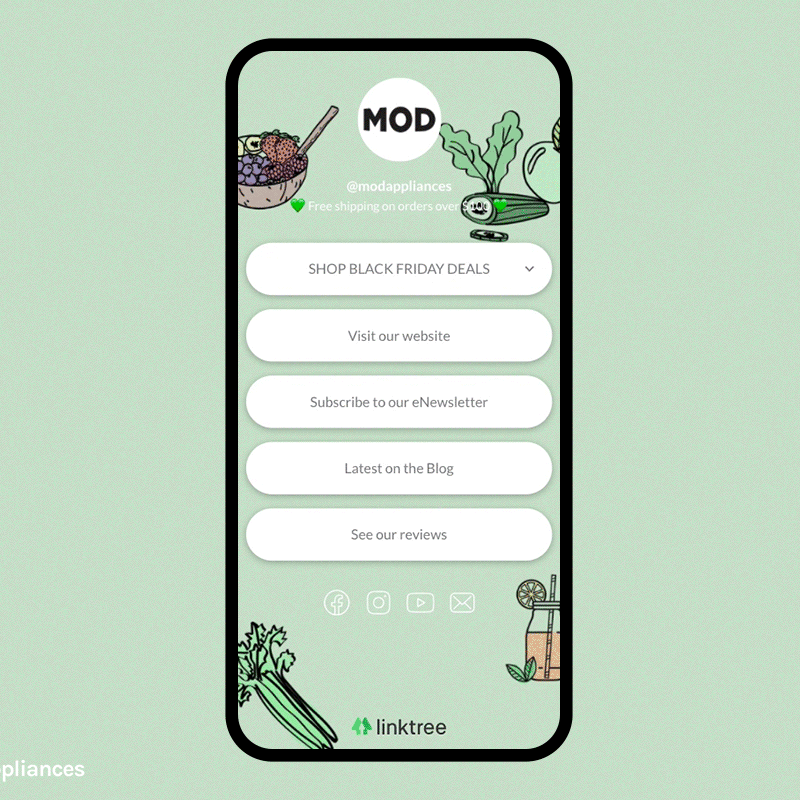A degrowth manifesto for food over-consumption
Italy – Reframing the notion of food scarcity as a remedy for over-consumption, The Beauty of Scarcity manifesto proposes a new retail model that celebrates frugality and resourcefulness. Written by food designer Francesca Sarti, the text challenges the long-standing belief that abundance is a good thing, championing the de-growth mindsets that we have seen in other industries.
As part of the manifesto, Sarti proposes five conceptual kiosks that advance her theory of 'aesthetic scarcity.' The Poetic Bakery, for example, draws from the Japanese ideologies of sessei (moderation), setsudo (restraint) and wa (harmony) to position rationing as a way to reduce over-consumption. Tapping into the ancient preservation systems of the Pilgrims and Berbers, Sarti's Nomadic Hut takes inspiration from the resourceful design of indigenous groups. The Ascetic Deli, meanwhile, takes design cues from mujin hanbaijos – unmanned shops in the Japanese countryside offering few products and an honesty box for payments.
As supply chain issues continue to put a strain on the global food market, and the link between diets and environmental destruction becomes more pronounced, Uprooted Diets are emerging to address the vulnerabilities of the food system.
Strategic opportunity
Consumer mindsets are shifting where waste and consumption are concerned. To attract eco-conscious consumers, consider how scarcity can align with self-reward, celebrations or pleasure
Acne spotlights global issues in revived magazine
Sweden – In a bid to stand out from oversaturated online spaces, the apparel brand is relaunching its print magazine, Acne Paper, after a seven-year hiatus. To continue its existing credibility as a stand-alone magazine rather than a brand catalogue, it will focus on global affairs and political content. Priced at £33.50 ($44.80, €40), the title will be sold in Acne Studios stores and selected magazine retailers globally.
By creating a high-quality publication, the brand shows how slower, lifestyle-led forms of marketing can establish long-term interest with audiences. It also creates engagement with customers beyond new garments or social media shares. ‘In this day and age when everything is pretty much commercialised in one way or another, it’s actually a great liberty and privilege for us to be able to do this product and not have a solid thought through a business case, but actually just do a product that we really, really love,’ explains Mattias Magnusson, CEO of Acne.
Such printed, physical marketing can act as an entry point into a brand universe, while maintaining ongoing relationships with loyal customers.
Strategic opportunity
Luxury and fashion brands can find tangible and meaningful ways to connect with audiences beyond their product lines. Consider items like board games, print publications or podcasts
Linktree’s focus filter tool to boost users’ reach
US – Shopify and social media navigation tool Linktree are teaming up to help creators to increase their sales and reach during the 2021 holiday.
As part of an improved omni-channel experience Linktree will launch a Shopify integration, helping smaller businesses and services to directly promote their products, while connecting to global audiences.
Among the tools provided by the partnership, users can promote new arrivals on Linktree, while any updates on Shopify will automatically be included in a user's biography. They can also highlight the most frequently purchased items on Shopify via the Linktree menu.
By combining these two services, this partnership aims to improve the omni-channel user experience for customers buying products through social media vendors.
Taking immediate effect, this partnership ties into the rise of Feedback Frontiers that are helping businesses to forge more intimate relationships with online shoppers. As the holiday season approaches, companies looking to reach online shoppers can maximise sales by making use of this new feature.
Strategic opportunity
While social media platforms have become secondary storefronts for shoppers and brands alike, consider how such tools allow greater focus and filtering, directing people to key items, information or booking systems
Stat: Male daters feel connections faster than women
Dating platform Match has released its annual Singles in America study, which this year finds that men (24%) are feeling more social pressure to find a relationship than women (17%). 'There’s always talk of women’s biological clocks pressurising them to settle down. And while men don’t exactly face this same challenge, they do feel more social pressure to find a relationship these days,' reads the Match report.
Meanwhile, the study also shows that, once they are dating, men tend to feel an emotional connection faster than women. Some 53% of men can feel it by the second date, compared to 38% of women. Interestingly, while men are often seen as more eager to enter the bedroom, 81% say they now find sex less important than they did pre-pandemic.
These figures provide a marked contrast to familiar stereotypes, ushering in an era of New Masculinity when men no longer need to rely on interactive media platforms to forge emotional connections.
Strategic opportunity
When targeting men, avoid using hyper-masculine tropes and instead focus on facilitating emotional connections. Beyond romantic relationships, such an approach can be used for male friendships and family relations
:strip_exif():strip_icc()/filestorage/images/108803/ntk-video-size.jpg)
:strip_exif():strip_icc()/filestorage/images/108802/table-manifesto.jpg)
:strip_exif():strip_icc()/filestorage/images/108804/ntk-video-size2.jpg)
:strip_exif():strip_icc()/filestorage/images/108820/acne-paper-1.jpg)
:strip_exif():strip_icc()/filestorage/images/108821/acne-paper-2.jpg)

:strip_exif():strip_icc()/filestorage/images/108822/ntk-stat-temp.jpg)
:strip_exif():strip_icc()/filestorage/images/130344/luffu-hand-and-phone-land-2.jpg)
:strip_exif():strip_icc()/filestorage/images/130355/002-nike-portland-4.jpg)
:strip_exif():strip_icc()/filestorage/images/130321/sarah-creal-sccs-lipstick-hans-nada-glasses.jpg)
:strip_exif():strip_icc()/filestorage/images/130297/metamorphosis-day1-aw26-by-jonas-ruhs-for-fcg-0486.jpg)
:strip_exif():strip_icc()/filestorage/images/130282/s1-e3-leading-natalie-milan-thumbnail-1.png)
:strip_exif():strip_icc()/filestorage/images/130269/000091070014.png)
:strip_exif():strip_icc()/filestorage/images/130214/edit.png)
:strip_exif():strip_icc()/filestorage/images/130248/ello-fp1chij6dh4-unsplash.png)
:strip_exif():strip_icc()/filestorage/images/130213/mask-architects-solaris-01-7.png)
:strip_exif():strip_icc()/filestorage/images/130152/tn-large-1744200709-brigadaxmireo-20.jpg)
:strip_exif():strip_icc()/filestorage/images/130370/tressly-studios-4.JPG)
:strip_exif():strip_icc()/filestorage/images/126365/screenshot-2025-05-05-at-23-29-16.png)
:strip_exif():strip_icc()/filestorage/images/105106/fashion.jpg)
:strip_exif():strip_icc()/filestorage/images/130365/koto-machinex-15.png)
:strip_exif():strip_icc()/filestorage/images/130366/024.JPG)
:strip_exif():strip_icc()/filestorage/images/102540/06-purpose.png)
:strip_exif():strip_icc()/filestorage/images/130346/screenshot-2026-02-26-at-09-44-32.png)
:strip_exif():strip_icc()/filestorage/images/130343/image-2.jpeg)
:strip_exif():strip_icc()/filestorage/images/105615/2-gen-z.jpg)
:strip_exif():strip_icc()/filestorage/images/130323/gwr-five-and-the-dragon-quest-still-2.jpg)